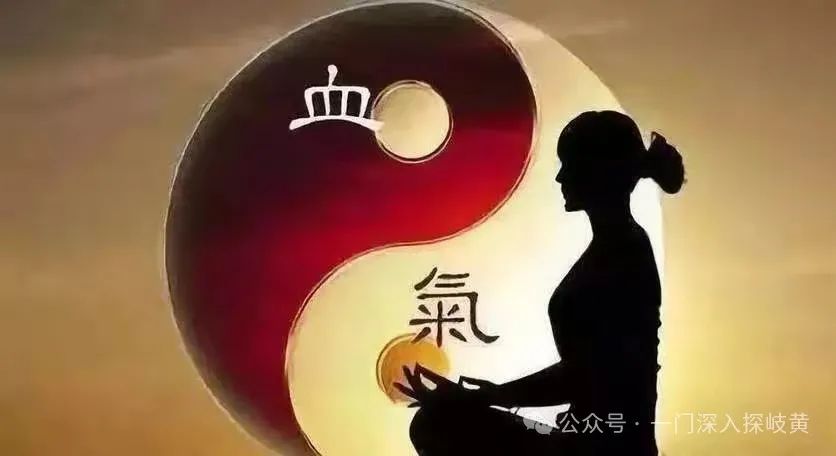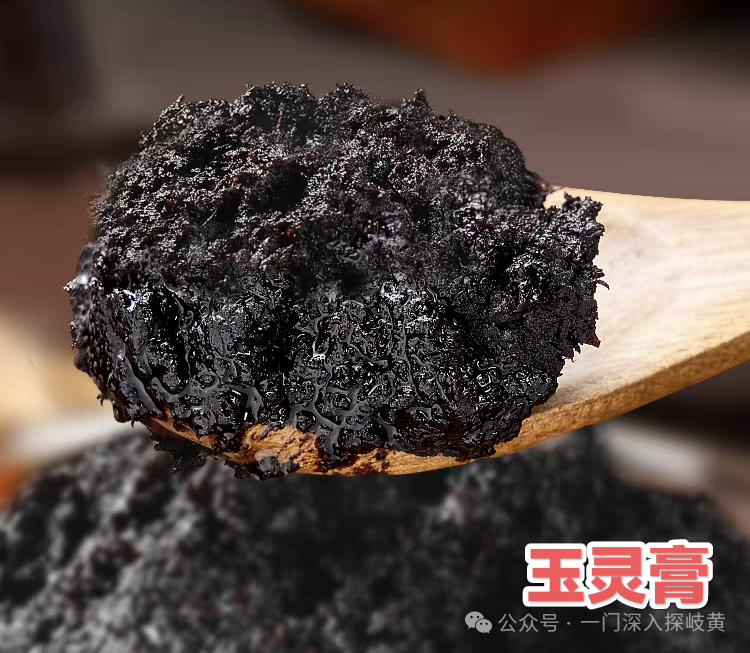

 In today’s society, although people do not suffer from hunger, there are still many individuals with xue xu (血虚, Blood Deficiency). Of course, the degree of blood deficiency varies from person to person. Let me illustrate with a few examples! Some people often feel fatigued; after a day of errands like grocery shopping or taking the kids to school, they collapse on the sofa and do not want to move for a long time. Others frequently experience palpitations, feeling their heart racing inexplicably, as if they have a rabbit in their chest. Some hear a distinct thumping sound in their ears when lying on their side at night, which is the sound of their heartbeat. Others may wake suddenly from a deep sleep due to a rapid heartbeat. Additionally, many have poor sleep quality, including difficulty falling asleep, light sleep, frequent awakenings, and vivid dreams; these are all manifestations of blood not nourishing the heart. Many also experience pain in various parts of the body, but medical examinations reveal no issues. Traditional Chinese Medicine (TCM) believes that not all pain is due to pathogenic factors; it may also arise from insufficient qi (气, vital energy) and blood. In TCM, it is said that “xue xu ze tong” (血虚则痛, Blood Deficiency causes pain) or “bu rong ze tong” (不荣则痛, Lack of nourishment causes pain). Some feel their memory is deteriorating, forgetting more and remembering less. Others may feel dizzy upon standing after bending down to pick something up, which is also a sign of blood deficiency. Constipation caused by blood deficiency occurs because qi has a pushing effect while blood nourishes and moistens; when both are deficient, waste cannot be expelled from the intestines. Some individuals appear pale or sallow after illness or childbirth, not the healthy yellow of skin, but rather like a wilting flower, lifeless and dull, which is termed wei huang (萎黄, sallow complexion). Their faces lack luster and are not rosy, with dry and brittle hair that breaks easily, and nails that are pale and brittle, growing slowly and weakly. The examples I provided are clinical manifestations of blood deficiency, and there are many more, but due to space limitations, I cannot cover them all! So why, despite modern living conditions being so good, are there still so many people with blood deficiency? I believe it is closely related to the following points!
In today’s society, although people do not suffer from hunger, there are still many individuals with xue xu (血虚, Blood Deficiency). Of course, the degree of blood deficiency varies from person to person. Let me illustrate with a few examples! Some people often feel fatigued; after a day of errands like grocery shopping or taking the kids to school, they collapse on the sofa and do not want to move for a long time. Others frequently experience palpitations, feeling their heart racing inexplicably, as if they have a rabbit in their chest. Some hear a distinct thumping sound in their ears when lying on their side at night, which is the sound of their heartbeat. Others may wake suddenly from a deep sleep due to a rapid heartbeat. Additionally, many have poor sleep quality, including difficulty falling asleep, light sleep, frequent awakenings, and vivid dreams; these are all manifestations of blood not nourishing the heart. Many also experience pain in various parts of the body, but medical examinations reveal no issues. Traditional Chinese Medicine (TCM) believes that not all pain is due to pathogenic factors; it may also arise from insufficient qi (气, vital energy) and blood. In TCM, it is said that “xue xu ze tong” (血虚则痛, Blood Deficiency causes pain) or “bu rong ze tong” (不荣则痛, Lack of nourishment causes pain). Some feel their memory is deteriorating, forgetting more and remembering less. Others may feel dizzy upon standing after bending down to pick something up, which is also a sign of blood deficiency. Constipation caused by blood deficiency occurs because qi has a pushing effect while blood nourishes and moistens; when both are deficient, waste cannot be expelled from the intestines. Some individuals appear pale or sallow after illness or childbirth, not the healthy yellow of skin, but rather like a wilting flower, lifeless and dull, which is termed wei huang (萎黄, sallow complexion). Their faces lack luster and are not rosy, with dry and brittle hair that breaks easily, and nails that are pale and brittle, growing slowly and weakly. The examples I provided are clinical manifestations of blood deficiency, and there are many more, but due to space limitations, I cannot cover them all! So why, despite modern living conditions being so good, are there still so many people with blood deficiency? I believe it is closely related to the following points!
First, it is due to poor eating habits! In the past, people suffered from hunger, leading to blood deficiency, while today, many eat too much or too full, damaging the pi wei (脾胃, spleen and stomach). It is important to know that the spleen and stomach are the source of our qi and blood. TCM states, “yin shi zi bei, pi wei nai shang” (饮食自倍,脾胃乃伤), meaning that if you eat beyond what your spleen and stomach can handle, they will be harmed. When the spleen and stomach are injured, it manifests as a lack of appetite or inability to digest food, leading to insufficient qi and blood supply, resulting in blood deficiency. Women are particularly prone to qi and blood deficiency, and when the spleen is damaged, the deficiency worsens. This creates a vicious cycle, and many women’s health deteriorates due to this cycle!
Second, it is due to excessive worrying. We know that the qi and blood consumed by mental laborers is not less than that of physical laborers. Nowadays, people think much more than in the past, which depletes their mental energy. They worry about whether to buy a house, whether to sell stocks, how to improve their children’s grades, how to prevent their husbands from cheating, and even about global conflicts. Too many desires and worries, unable to let go, various pressures and anxieties all deplete xin xue (心血, heart blood). Why does excessive thinking harm the spleen? Because “si ze qi jie” (思则气结, Thinking causes qi stagnation); when a person thinks too much and cannot resolve their thoughts, their spleen and stomach qi becomes congested, affecting their ability to ascend clear and descend turbid, leading to poor circulation of qi and blood, resulting in a lack of appetite. Even if they eat, they cannot digest it, and without proper digestion, qi and blood cannot be generated.
Another cause of blood deficiency is staying up late. Nowadays, staying up late has become a daily routine for many young people. From observation, some people work under excessive pressure, often working late into the night. Even after work, they still look at their phones for a while before sleeping. TCM believes that staying up late harms yin (阴, the nourishing aspect), and jin xue (津血, body fluids and blood) belong to yin. Nighttime is the best time for nourishing blood, and if one does not sleep, it can lead to qi and blood deficiency, causing various illnesses. For example, staying up late can deprive the brain of blood nourishment, leading to fatigue, memory decline, forgetfulness, sluggishness, and decreased attention. The Nei Jing states, “yang qi zhe, jing ze yang shen” (阳气者,精则养神). If yang qi cannot return to its source, it cannot nourish the spirit. The heart governs the spirit; if the heart is not nourished, cognitive functions such as thinking, judgment, memory, and attention will inevitably decline. Furthermore, blood deficiency can lead to blood not nourishing the heart and the liver not storing blood, making sleep disturbances more likely. Such overexertion will eventually take a toll on the body!
Today, I would like to introduce a dietary therapy that nourishes blood while also tonifying qi, improves sleep, and benefits the spleen and stomach. It has been praised as “greatly nourishing qi and blood, surpassing ginseng and astragalus”! It has a beautiful name, called “Yu Ling Gao” (玉灵膏, Jade Spirit Paste), from the dietary compendium of the famous Qing Dynasty physician Wang Mengying. The recipe is very simple, consisting of two well-known ingredients: longan and American ginseng [Of course, it can be substituted with ginseng or red ginseng, or even dang shen (党参, Codonopsis) or tai zi shen (太子参, Prince Ginseng)]. The original text states: “For those with excess internal heat, add slices of American ginseng.” This means that the true Yu Ling Gao only requires one ingredient, which is sweet longan flesh! Given that modern people tend to overthink and experience high levels of stress, the combination of longan and American ginseng is more suitable for modern constitutions, being more balanced and less likely to cause internal heat. Zhang Xichun in “Yi Xue Zhong Zhong Can Xi Lu” states: “American ginseng is cool and nourishing; anyone who wants to use ginseng but cannot tolerate its warming properties can use this as a substitute.” The combination of longan and American ginseng is warm but not drying, cool but not cold, making it a perfect match for nourishing both qi and blood, suitable for almost everyone with blood deficiency, including many men. In my view, this Yu Ling Gao is more of a dietary therapy than a medicinal formula; although the main ingredient, longan, is a fruit, it has excellent nourishing properties, even praised in the Shen Nong Ben Cao Jing as “the fruit that benefits the intellect.” However, many people experience symptoms of internal heat after consuming longan, such as mouth sores or dryness. How can longan be consumed without causing internal heat? The experience of the great physician Wang Mengying from the Qing Dynasty is to steam it with water. The original method of preparation states: “For Yu Ling Gao, also known as Dai Shen Gao, after peeling the longan, place it in a bamboo tube-style porcelain bowl, with one tael of flesh and a small amount of white sugar. For those with excess internal heat, add slices of American ginseng according to the amount of sugar. Cover the bowl with a layer of silk and steam it daily over a rice cooker for a hundred times. For those who are weak, elderly, or have no phlegm-heat, take one spoonful with hot water for a great boost to qi and blood, surpassing ginseng and astragalus. It is especially beneficial for postpartum women.” The original text requires steaming the longan flesh for 100 times (approximately 40 hours). Why is such a long steaming time necessary? Because longan flesh is sweet and warm, entering the heart and spleen channels. It has a strong internal heat, and if consumed in excess, it can cause internal heat. Steaming for such a long time using traditional methods significantly reduces its heat. During the steaming process, the color changes from yellow-brown to dark brown or black, greatly reducing its heat. Additionally, the mixture needs to be stirred every four hours to ensure even heating and a finer paste. Unlike other pastes that are boiled with water, Yu Ling Gao is made by moistening the ingredients with steam. Water boiling for a long time produces white powder, so it is necessary to change the water every four hours. At the end, I would like to add the method of consuming Yu Ling Gao: Take a small spoonful, about 10 grams, and place it in a cup, adding hot water to consume. Of course, the amount of hot water should be appropriate; it should not be too diluted, as this will affect the efficacy.



